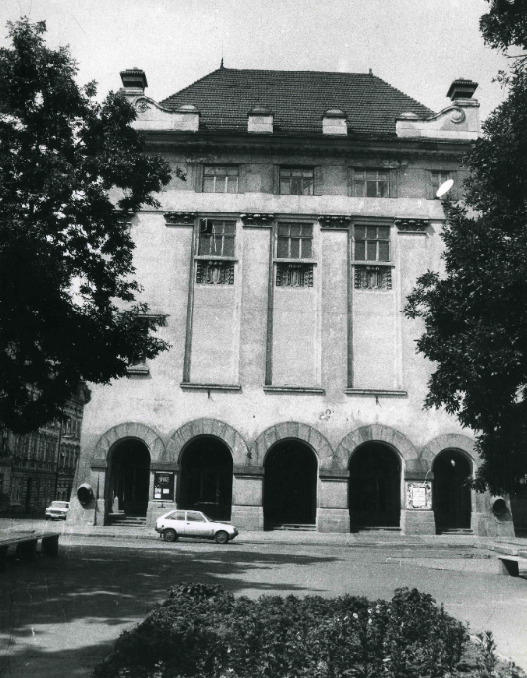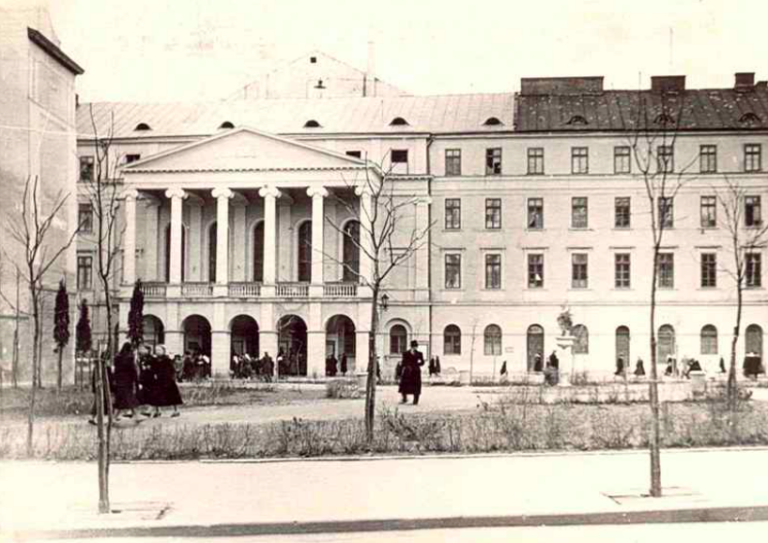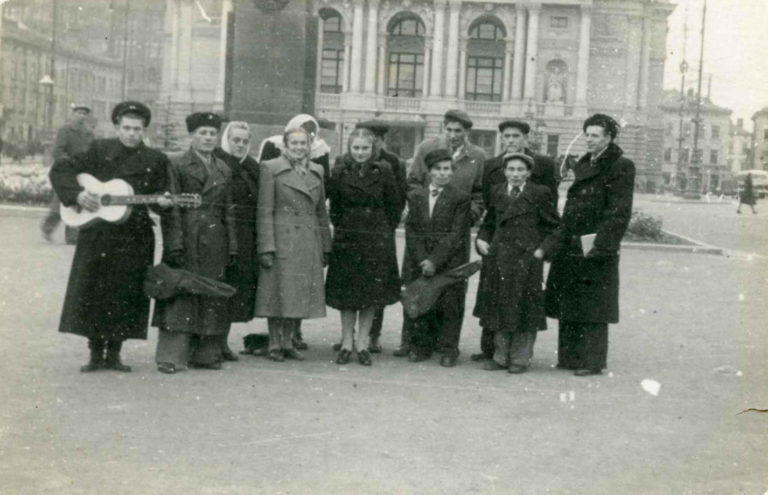[The interviewer asks about her mother]
And so it went that she was born into a military family. In the years 1945 – 1946, they lived in Moscow. But my grandfather did not recognize [the value of] any theaters, so my mother entered to study English philology, but still, her fate led her to her favorite idol, and she went to the theater studio – she was a favorite student of Alla Konstantinovna Tarasova. In 1946 she was studying English philology in Moscow at the Military Institute of Foreign Languages of the Red Army. But when my grandfather was transferred to Lviv in 1946, he did not want to leave her in Moscow, and took her along to Lviv. There was no English philology at the university at that time. She entered for Russian philology, and after graduating from the university, she came to teach Russian language and literature at the House of Officers. In the post-war years, there were officers, even colonels, who did not have even the ten years of school completed, that is, she was teaching in the evening school. And our director of the theater at that time, Agasyants Avetis Khristoforovich, studied there, he was her student, but also, knowing that she loved theater very much, he took her along. At first, she even combined the jobs; he recruited her as the head of the literary department, then he took her to the theater as such. That’s how she got to the theater, yes.
My mother, as to all the repertoire, all the plays that were staged, she would get them by herself. I remember that we had such a play, it was banned in those years – Capercaillie’s Nest, we put it on, I think, two performances; later it was banned. My mother brought the play from Moscow. We were the first theater to stage it. That is, she had such connections that the playwrights themselves were the first to put the plays to her hands. She talked to famous playwrights – with Rozov, with Bondarev, with Salynsky. I have a letter from Vera Panova at home, I do. Her work was based on the principle that she actually , as the verse says: “… she zealously set the repertoire” – she actually brought the plays here. Almost all the plays that were staged in the theater in the years when she worked, she brought them from Moscow, fighting hard for them, in fact.




This is an excerpt from an interview with a lighting designer in Lviv in which she talks about her mother, Tatiana Zorina, who for many years was the zavlit, or literary director, at the Theater of the Carpathian Military District on Horodotska Street in Lviv. This theater, called by locals simply PrykVO, was a Russian-language theater under the management of the Ministry of Defense that operated in Lviv from 1954 until the Soviet collapse. The theater continued, in various forms, under various state institutions, shifting and changing, until becoming today’s Teatr Lesi. Several interviews from the UMA collection linked here reveal the history of this fascinating theatrical institution. Tetiana Zorina, as the source tells us, came to Lviv from Moscow with her military family. In the postwar years, Lviv was a good post for a military officer precisely because of the extent of Sovietization necessary to make this region part of the Soviet Union. Note that she taught in evening courses; this was a feature of the postwar years. Because so many men had been killed in World War II an entirely new generation of military rose up through the ranks— without basic education. Marlen Khutsiev’s 1956 film made at Odesa Film Studios Spring on Zarechnaia Street hinges on this plotline of teachers educating workers. Avetis Agasiants is also an interesting figure who stayed with the military theater for many years and clearly appreciated the arts.
We could ask many questions of this source. First, it highlights connections that might be unexpected—between the military and the theater, for example. Zorina herself is from a military family, yet studied with Moscow actress Alla Tarasova. In Lviv, we see the links between the military and the theater in the theater itself, of course, but also in PrykVO’s attracting “culturally-inclined” people to work there. The source also highlights shifts in cultural landscape in the postwar period, and the ways in which newly Soviet cities, like Lviv, experienced these social shifts. Think about the connection with Moscow: it is a source for plays, yet in Lviv they can perform these plays perhaps more easily than in Moscow itself. Of course, this may be due to the structural place of the Theater of the Carpathian Military District, which was not a “normal” Lviv theater. One can also talk about gender here; note that Zorina is the one with the Moscow connections to get the plays and so her choices and connections determine the theater repertory.